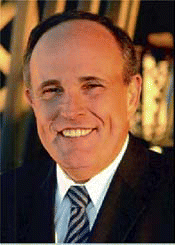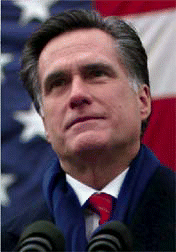With, reportedly, more than 40 million Americans uninsured and health care costs spiraling out of control, it’s no wonder that health care reform tops the list of domestic issues among the 2008 presidential candidates. Although everyone agrees that the current system doesn’t work, suggestions for improvement are strikingly different.
Explore This Issue
December 2007National polls broken down by party lines have shown that Democratic voters cite uninsured Americans as their primary concern, whereas Republicans worry about high health care costs. In response, Democratic presidential contenders advocate a mandatory or modified universal health care system where it’s the government’s job to make sure everyone has health insurance. On the other hand, Republican candidates have called for shared responsibility and incentives such as tax credits and consumer-directed health savings accounts to reduce costs.
As pointed out recently on the Huffington Post (an online commentary site), the next president will need to resolve issues raised by a variety of advocates, from insurance companies, the pharmaceutical industry, and business to hospitals and health care providers. America’s choice in 2008 will likely have an impact on health care costs and delivery, and could potentially affect expensive tests ordered by physicians and reimbursement they receive for services.
Is it Time for Universal Care?
In noting the similarities among the Democratic party front-runners, the Commonwealth Fund and its Commission on a High Performance Health System says that Senators Hillary Clinton, John Edwards, and Barack Obama want to build on the strengths of the current system by pooling risk in large groups, generating efficiencies through employer-based coverage, and building on the success of public programs such as Medicare, Medicaid and the State Children’s Health Insurance Program (SCHIP).
The three candidates call for a new purchasing pool to extend health care coverage to individuals not covered under employee plans. Sens. Clinton and Obama suggest an enhanced Federal Employees Health Benefits Program (FEHBP), whereas Sen. Edwards wants a Medicare-like public insurance option in regional health markets. All three would require insurers to guarantee insurance to everyone, regardless of health status. However, Sens. Clinton and Edwards would require everyone to be covered, while Sen. Obama’s proposal mandates coverage only for children.
The Democratic Front-Runners
Already dubbed Hillary Care by many, Sen. Clinton’s plan would require everyone to have health insurance. She would offer a health-choices menu of private insurance options, a refundable tax credit so working families could buy health coverage, and a health care tax credit for small businesses. For those who want to change plans, or who aren’t currently covered, she offers a public plan option similar to Medicare.
On her Web site, she notes that relying on consumers or the government alone to fix the system has unintended consequences, like scaled-back coverage or limited choices. This plan ensures that all who benefit from the system share in the responsibility to fix its shortcomings.
Sen. Edwards would require all Americans to buy insurance and employers to help cover their employees or help finance insurance. He calls for reform of insurance laws, expansion of Medicaid and SCHIP, new tax credits, and innovative steps to contain health care costs. He says his regional health market purchasing pools would be designed to give Americans the bargaining power to purchase affordable, high-quality plans.
During a speech in Iowa, he said his proposal would require Americans to see a doctor for preventive health care. If you are going to be in the system, you can’t choose not to go to the doctor for 20 years.
Sen. Obama has called for a new public insurance program for Americans who do not qualify for Medicaid or SCHIP and do not have access to employer-paid insurance. His proposal would also establish a National Health Insurance Exchange to reform the private insurance market and help Americans and businesses to purchase private health insurance directly.
The senator says his plan would reduce costs and save a typical American family up to $2,500 each year. He advocates adoption of health information technology, improved access to preventive care, hospital cost and quality report cards, and lower drug costs by allowing the importation of safe medicines from other countries.
The Democratic candidates have indicated that they are willing to put substantial public money into health care reform. The estimated costs of their plans are:
- Clinton-approximately $110 billion
- Edwards-$90 to $120 billion
- Obama-$50 to 65 billion
 Hillary Clinton would offer a health-choices menu of private insurance options, a refundable tax credit so working families could buy health coverage, and a health care tax credit for small businesses.
Hillary Clinton would offer a health-choices menu of private insurance options, a refundable tax credit so working families could buy health coverage, and a health care tax credit for small businesses.The Other Democrats Weigh In
The other Democratic Party candidates agree with the concept of mandatory insurance.
Senator Joe Biden seeks to cover all children under age 18 and expand coverage for the most vulnerable members of society. To cover his proposals, he would allow tax cuts to expire for those in top earnings brackets, keep the inheritance tax, use efficient Internet technology, and use savings from an end to the Iraq war to help pay for his program.
Senator Chris Dodd would require employers to provide insurance or pay into a Health Care General Fund. Individuals not covered by employers would be required to purchase insurance from the fund. He would use health Internet technology to help cover costs.
Former Senator Mike Gravel suggests that the government issue annual health vouchers to cover all Americans based on their projected needs. His plan would prohibit exclusion based on health, wealth, or any other reason.
Representative Denis Kucinich advocates a single-payer system that is publicly financed and privately delivered, as embodied in the Conyers-Kucinich bill, HR 676. He would increase taxes on the top 5% of income earners, institute a modest payroll tax and small tax on stock and bond transactions, and reduce system inefficiencies.
Governor Bill Richardson says all Americans would be required to obtain coverage. He would work for the passage of a Medical Borrower’s Fairness Act to provide immediate relief to families, increase health system efficiency, and provide tax credits based on income.
Let the Free Market Reign?
Meanwhile, Republican front-runners Rudy Giuliani, John McCain, Mitt Romney, and Fred Thompson prefer to reduce federal programs. Republicans are encouraging competition, calling for portable insurance, and generally opposing mandates for coverage. The Commonwealth Fund points out the similarities among these candidates, noting that they wouldn’t require people to purchase insurance or employers to pay for it; rather, the Republicans would rely on tax incentives to induce consumers to purchase individual health plans.
 Rudy Giuliani said, Americans should have the option to buy health insurance similar to their auto insurance-covering major costs while leaving decision about minor expenses to the consumer-while those happy with their current coverage can keep it.
Rudy Giuliani said, Americans should have the option to buy health insurance similar to their auto insurance-covering major costs while leaving decision about minor expenses to the consumer-while those happy with their current coverage can keep it.Former New York Mayor Giuliani believes in individually purchased private insurance policies and thinks that health savings accounts are a good idea. In a Boston Globe editorial, he said, If millions of people go into the marketplace looking for less expensive health insurance, it will drive the insurance companies to create less expensive products that meet individual needs instead of government mandates. Americans should have the option to buy health insurance similar to their auto insurance-covering major costs while leaving decision about minor expenses to the consumer-while those happy with their current coverage can keep it.
His health care plan includes a tax deduction for citizens to buy their own health insurance. He has criticized the current tax system, noting that it penalizes millions, including the rising ranks of the self-employed and 40 percent of employees at small firms who pay for insurance on their own and receive no tax benefit.
Senator McCain, who announced a detailed health plan this fall, has focused more on cutting costs than on covering the uninsured. He notes on his Web site that bringing costs under control is the only way to stop the erosion of affordable health insurance. In addition to tax incentives, he said he wants to contain spending by better treating chronic diseases such as diabetes and heart disease. While developing national standards for measuring and recording treatments and outcomes, he wants to reform Medicare payments to compensate providers for diagnosis, prevention, and care coordination, but not preventable medical errors or mismanagement.
He also plans to promote healthier lifestyles for Americans, encourage generic drugs and biologics (including the importation of drugs from Canada), advocate retail walk-in clinics at unconventional locations such as Wal-Mart, and support tort reform to protect physicians who follow national guidelines on care.
Interestingly, although Massachusetts Gov. Romney promoted a comprehensive health care program in his state that required universal coverage and a method for everyone to obtain it, he is opposed to a national version of that plan. He prefers, instead, for each state to develop its own market-based reform, based on each state’s unique needs and characteristics. In an interview with CNN, he said, The last thing we want to do is have the government take over health care, because anything they take over gets worse, not better.
Instead of using federal money to reimburse hospitals for treating people without insurance, Gov. Romney advocates using that money to help low-income people buy insurance at a lower cost. He has also said that the current tax system penalizes those who do not acquire their health insurance through an employer.
Former Senator Fred Thompson had not released details for a health care plan by ENT Today‘s deadline, but he notes on his Web site that those who propose a one-size-fits-all Washington-controlled program ignore the cost, inefficiency and inadequate care that such a system offers….Current government programs must also be streamlined and improved so that those who truly need help can get the health care they need.
Information on the cost of the Republicans’ proposed plans has not been available.
Additional Republican Comment
Former Arkansas Gov. Mike Huckabee supports prevention and plans to work with the private sector, Congress, and health care providers to overhaul the system. He proposes a shift from employer-based to consumer-based health care, as well as portable insurance. His proposal calls for a reform of medical liability, the adoption of electronic record keeping, an expansion of health savings accounts, and tax credits for low-income families.
 Barack Obama has called for a new public insurance program for Americans who do not qualify for Medicaid or SCHIP and do not have access to employer-paid insurance.
Barack Obama has called for a new public insurance program for Americans who do not qualify for Medicaid or SCHIP and do not have access to employer-paid insurance.Representative Ron Paul, MD, has said he is rethinking the entire health care system. He believes the free market should determine health care costs to increase choice and make it more affordable. The costs would be covered by tax code changes allowing tax deductions.
Representative Duncan Hunter noted during a recent debate that allowing Americans to buy insurance across state lines would lower costs. Opposed to government-subsidized health care, he said a government plan would not motivate consumers to keep costs down.
Representative Dan Tancredo wants market-based solutions to health care problems. He has said that immigration enforcement would save money in the health care system and drive down costs. He supports association health plans that band small businesses together and for unemployed individuals, and he believes state governments should be the primary source of relief.
A Single-Payer Option?
One group that is dissatisfied with both Democrats’ and Republicans’ plans is Physicians for a National Health Program (PNHP). Don McCanne, MD, a PNHP senior health policy fellow, told ENT Today that a single-payer program is needed because our current model of a multitude of private plans and private programs is failing us. Cost increases are intolerable, more are going without insurance, and the fastest growing problem is under-insurance, leaving those with health care needs financially vulnerable. We are spending enough to provide comprehensive health care for everyone, but our fragmented system of health care financing has failed to direct our resources where we need them.
The PNHP claims that the Democratic proposals would leave millions without coverage and the Republican plans would fail to realistically address major concerns in health care financing. Instead, the group recommends a single, universal risk pool that is equitably funded through the tax system as the most efficient, effective, equitable, and least expensive model.
On the other hand, critics point out that single-payer coverage is unaffordable and would give the government too much power. Additionally, some of the universal-care opponents have said that many people aren’t insured because they choose not to be.
Whether any form of universal coverage can make its way through a divided Congress is another issue. As New York Times reporter Robert Pear said in an October 6, 2007 article, The debate now raging here over the children’s health insurance program offers a cautionary lesson to Democrats running for president. It shows how hard it will be to persuade many Republicans to sign on to their vision of universal coverage.
Should Employers Be Financing Health Care?
Meanwhile, the presidential candidates (except for Gov. Huckabee) have not yet endorsed a shift away from employer-financed health care. This fall, the Committee for Economic Development (CED), an independent, nonpartisan organization of business and education leaders, released a lengthy report saying that businesses are hard-pressed to maintain their health-insurance commitments to their employees and remain competitive.
The report, largely under the guidance of Stanford’s Alain Enthoven and the CED’s Joseph Minarik, notes that the CED does not support either a government-run command-and-control system, or a so-called consumer-directed system under which individuals would take at least implicit responsibility for choosing their own therapies and treatments. Rather, the organization recommends market-based consumer choice among competing insurance and care-delivery plans that meet quality and coverage standards, where individuals would receive a fixed-dollar credit to pay for premiums, so that they can purchase one of many competing private insurance plans. Tax credits for employer-financed health care would end.
The report also calls for mandatory and standardized reporting of quality and performance by insurers, and recommends the establishment of an independent regulatory agency to report on the state of the health-care sector in terms of inflation and affordability, and ensure the efficiency and fairness of the insurance market.
Although the presidential candidates have not endorsed the CED plan, nor advocated a shift away from the traditional employer-paid health insurance plans, a Congressional measure co-sponsored by Democratic Sen. Ron Wyden of Oregon and Republican Sen. Robert Bennett of Utah considers this controversial option.
 Mitt Romney feels that instead of using federal money to reimburse hospitals for treating people without insurance, that money should be used to help low-income people buy insurance at a lower cost.
Mitt Romney feels that instead of using federal money to reimburse hospitals for treating people without insurance, that money should be used to help low-income people buy insurance at a lower cost.Can We Retain Quality and Safety?
Whatever course the next president chooses, there is little doubt that America’s health care delivery system will look different in years to come. With that knowledge come several questions. Will America retain its record of quality, safety, and innovation in health care and medical science? Will universal care or an enhanced free-market system allow medical professionals to better concentrate on healing the patient, rather than dealing with insurance hassles and malpractice liability? Will the practice of medicine become more efficient, or be bogged down in bureaucracy?
While the debates continue, Americans mull over their choices and hope for the best.
©2007 The Triological Society
Leave a Reply